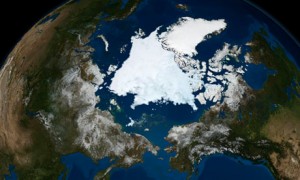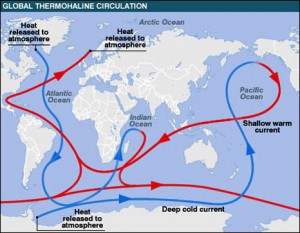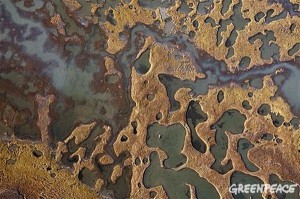The title of this post says it all.
And I can’t take credit for saying it, this was taken from this article in the Guardian, by George Monbiot. The real truth is, we went mad way before this date, but this is a great symbol for how we have really lost track of what is important. August 28 2012 is the day we broke all Arctic Ice melting records, and have lost the most sea-ice since we have been keeping track. And to-boot, this record was set 3 weeks before the melting typically stops its yearly retreat. But hey, what’s “typical” these days. Melting could continue on for another few months and we can simply annihilate the previous record, which was set not to long ago in 2007. The Arctic is now warming at almost twice the rate as the rest of the earth, because as ice melts more of the sun’s energy, which would normally be reflected back into space by the ice, is absorbed by the dark water.
This is a big deal – I can’t overestimate the significance of this ‘milestone’. Not only is it showing that we are losing more sea-ice than our best models have predicted (which means climate change is progressing and accelerating much faster than thought possible), but the loss of sea-ice – ie. the destabilization of the Arctic climate – is the proverbial ‘canary in the coal mine’ and is setting the stage for the destabilization of the rest of the worlds climate. The Arctic (and Antarctic) regions of the planet play a vital role in the global ocean and wind currents which are quite literally responsible for the climate and weather felt by ALL of earth’s citizens, so the destabilization of these areas is rippling through the rest of the planet. For example, the global thermohaline, which is responsible for moving warmer water from the tropics to the poles and cooler water from the poles down to the tropics is expected to slow down and shift as ocean temperatures change and more importantly as the salinity of the water changes due to increased melting of the planets sea-ice and glaciers (which are of course fresh water).
“In the past we know that a sudden change in Atlantic currents has happened because of a relatively sudden release of freshwater into the North Atlantic. We can imagine that it could happen again,” said Benjamin Rabe, of Germany’s Alfred Wegener Institute for Polar and Marine Research in Bremerhaven.
“If that amount of freshwater is going to be suddenly released it would influence ocean currents, for instance the thermohaline circulation of the North Atlantic. I think we should definitely look at this further. The thermohaline ocean current has only been monitored for a few years,” he added.
“This ice has been an important factor in determining the climate and weather conditions under which modern civilization has evolved,” NASA chief scientist Waleed Abdalati told the Associated Press.
And if that’s not scary enough, the drastic warming of the Arctic region has had profound effects on the permafrost (and sub-sea permafrost) in this vast area. As the permafrost warms and thaws, it is realeasing staggering amounts of methane gas that was trapped over 11,000 years ago during the last ice-age. FYI, methane gas is over 20 times more effective at trapping heat in the atmosphere than carbon dioxide, so this release of methane from the warming Arctic is very troubling indeed.


